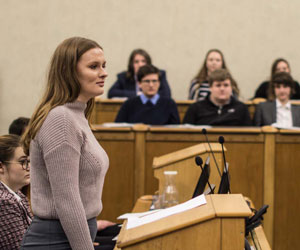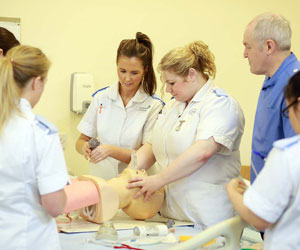Application Form
Please download and fill out the
Independent Supplementary Prescribing Application Form
Please use the above application form, we no longer accept the October 2021 version.
This is an exciting programme of study which, on successful completion, allows physiotherapists, podiatrists, paramedics and therapeutic radiographers to seek to have their qualification annotated by the Health and Care Professions Council (HCPC) and to practice as an Independent Prescriber.
Prescribing by physiotherapists, podiatrists, paramedics and therapeutic radiographers has evolved to offer better access to medicines and to optimise the skills and expertise of allied health professionals in the provision of care. Where appropriate, physiotherapists, podiatrists, paramedics and therapeutic radiographers are able to complete episodes of care, whilst also enhancing their role within the team.
Patients evaluate their experience of non-medical prescribing positively.
Students frequently report that the course is probably the most challenging they have undertaken since their pre-registration programme, but also the most rewarding. Students report positively on the organisation of the course and on the support provided for their preparation as prescribers. The programme delivery is designed to provide opportunities for you students to receive feedback to support the development of their knowledge, understanding and prescribing practice throughout the programme. We consider all student feedback and work with this to enhance the student experience and outcomes.
We meet regularly with non-medical prescribing leads and mentors to ensure that the programme maintains its relevance to the constantly evolving environment of healthcare. The programme team includes academic staff who continue to work in practice.
Further information and examples of nurse independent prescribing roles can be found using the link to the Non-Medical Prescribing Guide: a quick guide for commissioners (National Prescribing Centre, 2010).
Graduate destinations
Non-medical prescribing is offered as stand-alone provision, but can also contribute to a postgraduate award.
For example, you could transfer the credits into a top-up degree in Practice Development for a Postgraduate Certificate Practice Development or transfer the credits into a Postgraduate Diploma or MSc Practice Development.






